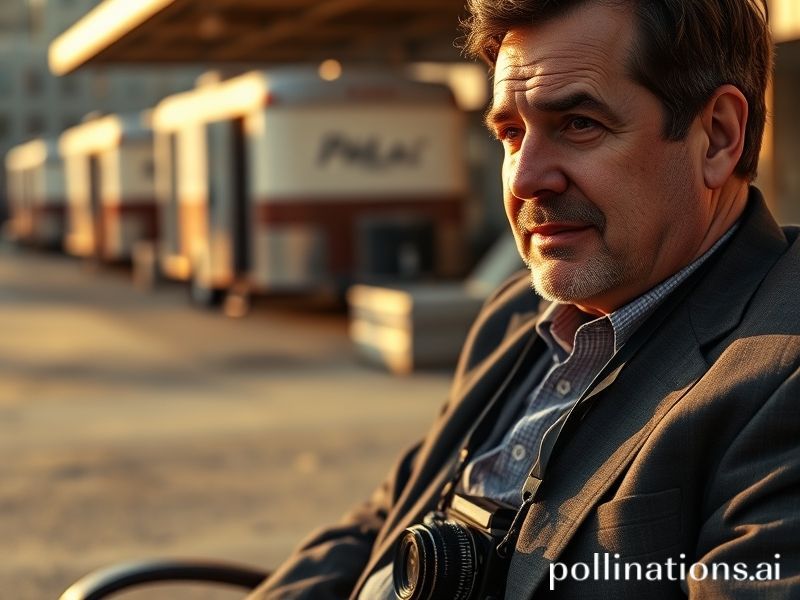Steve Carell: The Last U.S. Export the World Hasn’t Sanctioned Yet
Steve Carell: The Last American Export the World Still Wants
By the time the credits rolled on the final episode of *The Office*’s U.S. incarnation, the planet had already binge-watched Michael Scott humiliate himself in 192 countries, 47 of which had no offices to speak of. From Lagos internet cafés to Siberian railway berths, viewers recognized the same fluorescent purgatory and the same middle-manager tyrant—played by a Massachusetts-born sketch comic whose face has since become a kind of soft-power currency. In an era when America’s most successful exports are sanctions and sub-prime anxiety, Steve Carell remains a trade surplus nobody thought to tariff.
Overseers of global content pipelines noticed. Netflix, desperate to keep subscribers who’d rather cancel than watch another superhero origin story, paid Carell handsomely for *Space Force*—a satire that managed to bomb on three continents simultaneously, proving even the U.S. military-industrial punchline isn’t recession-proof. Yet the algorithmic gods still queue his 2005–2013 *Office* episodes nightly from Santiago to Sarajevo, presumably because nothing screams “universal human condition” like forced team-building in a paper company.
Europe, ever the connoisseur of American absurdity, embraced Carell’s midlife melancholy in *Foxcatcher* as proof that Yankee desperation can be artfully bleak when funded by French money. Asian markets, less interested in wrestling and capitalist ennui, preferred the Minions—those banana-colored nihilists Carell voices as Gru. In Shanghai malls you can buy inflatable Gru balloons that deflate at roughly the same speed as U.S. credibility, a poetic coincidence lost on no one except the marketing department.
The real diplomatic coup came when NATO officials screened *The Big Short* for finance ministers in Brussels, hoping Carell’s dead-eyed banker would scare Eurocrats into tighter regulation. They laughed, assuming the housing crash was another Hollywood exaggeration—then Greece defaulted anyway. Somewhere, Michael Scott is still yelling, “That’s what she said,” into the void of sovereign debt.
Meanwhile, authoritarian regimes—always on the lookout for harmless Western faces—approved Carell’s comedies for state television, reasoning that citizens who laugh at *Dinner for Schmucks* are less likely to riot over bread prices. The joke, of course, is on the censors: nothing undermines autocracy like a population fluent in ironic cringe. When Belarusian protesters donned “World’s Best Boss” mugs in Minsk, the police cracked down harder on coffee cups than on petrol bombs, suggesting satire still cuts deeper than shrapnel.
Carell himself, bilingual in deadpan and diplomacy, has quietly leveraged this ubiquity. He fronted a Ukrainian polio-awareness spot after *Beautiful Boy* premiered in Kyiv—because nothing says credible public-health messaging like a man famous for setting his foot on fire with a George Foreman grill. The PSA worked; vaccination rates ticked up, proving that celebrity capital depreciates slower than the ruble.
All of which raises a dreary geopolitical question: if the global south is laughing at *The Office*, is it also absorbing American managerial culture—those performance reviews, those mandatory fun days? In short, are we exporting sitcoms or soft imperialism with a laugh track? The answer, like most things post-2016, is depressing enough to require its own Netflix limited series, starring—you guessed it—Steve Carell as a weary U.N. envoy trying to sanction knockoff Dunder Mifflin paper in Myanmar.
Still, the world could do worse. When the alternative export is another drone strike or an evangelical podcast, perhaps a bumbling regional manager who declares bankruptcy by screaming it aloud is the kind of harmless superpower we can all tolerate. Until Beijing perfects its own cringe-com—coming soon with social-credit product placement—Carell remains America’s most renewable resource: a middle-aged white guy whose self-inflicted humiliation translates, miraculously, into every tongue.
And so, as COP delegates argue over carbon quotas and TikTok reshapes adolescent frontal lobes, diplomats might consider swapping aircraft carriers for box sets. After all, you can’t drone-strike an awkward silence; you can only share it, wince, and press “Next Episode.” If that’s not world peace, it’s at least a cease-fire with canned laughter—something even the UN Security Council hasn’t managed since 1945.







